
Last update: January 2025
Discover Georgia's rich cultural and religious heritage through its special eVisa for religion/pilgrimages, facilitating entry for spiritual seekers worldwide. With easy online application and quick processing, explore ancient monasteries, churches, and hospitable communities, making Georgia an ideal destination for profound spiritual journeys.
Requirements for Obtaining the Georgia eVisa
To qualify for the Georgia eVisa for religious or pilgrimage reasons, applicants must adhere to the following eligibility criteria:
- Travel Intentions: Applicants should be travelling to Georgia for religious motives, such as embarking on a pilgrimage or visiting religious sites.
- Stay Duration: The eVisa for religious/pilgrimage purposes typically allows for short-term stays in Georgia, usually up to 30 days within a period of 120 days or up to 90 days within a period of 180 days depending on your nationality.
- Passport Validity: The applicant's passport must remain valid for at least three months beyond the e-Visa's validity period.
- Location Requirement: Applicants must be absent from Georgia when submitting their eVisa application.
- Financial Capability: Applicants must possess adequate financial resources to cover all expenses related to their Georgia trip, including those for accompanying individuals such as minors or persons under guardianship.
- Travel Arrangements Evidence: Submission of evidence such as return tickets, hotel reservations, and comprehensive health/accident insurance covering the entirety of their stay in Georgia is mandatory.
- Accuracy in Information: Applicants must provide truthful and precise details during the eVisa application process. Submitting falsified documents or information may result in visa rejection or entry denial into Georgia.
- Acknowledgement Responsibility: Applicants must acknowledge their responsibility in determining their entry eligibility date into Georgia and understand that the eVisa application fee is non-refundable.
- Compliance with Border Crossing Procedures: Applicants must meet all conditions for crossing the Georgian border and present all necessary entry documents. Please comply to avoid entry refusal.
Required Documents for Georgia's eVisa Application for Religious Purposes
When applying for Georgia's eVisa specifically for religious or pilgrimage reasons, applicants are obliged to furnish the following essential documentation:
- Passport Validity: Submitting a valid passport extending at least three months beyond the eVisa's intended duration is mandatory.
- Photograph Specifications: Applicants must provide a recent colour photograph featuring a white background. Headgear or dark glasses should not be worn.
- Travel Itinerary Details: Detailed plans outlining the purpose of the visit, intended destinations within Georgia, and the planned duration of stay are required.
- Accommodation Confirmation: Providing confirmation of hotel reservations or alternative lodging arrangements is necessary.
- Health Insurance Coverage: Submitting proof of valid health insurance coverage throughout the stay in Georgia is essential.
- Return or Onward Travel Proof: Applicants must furnish evidence of a return ticket or onward travel plans from Georgia.
- Invitation Letter (if applicable): In cases where applicable, an invitation letter from the religious organisation or institution to be visited should be included.
- Financial Proof: Demonstrating adequate financial resources to cover all expenses related to the trip is mandatory.
- Completed Application Form: Accurate completion of the application form with truthful information is imperative.
- Payment of eVisa Fee: The eVisa fee must be paid using a valid debit or credit card during the application process.
Expected Processing Duration for Georgia's eVisa Application
It usually takes about (...) to process Georgia eVisa application for religious or pilgrimage purposes. However, it's a good idea to start your application at least 10 business days before your travel date to allow for any delays. Sometimes, it might take longer if more documents or checks are needed. To avoid last-minute problems, apply as early as possible. Processing times can vary, especially during busy travel seasons, so early submission is important.
Benefits of Georgia's eVisa for Religious Pilgrimages
The e-Visa tailored for religious pilgrimages in Georgia, presents several advantages when compared to traditional pilgrimage visas:
- Ease of Application: The entire application process for the eVisa is conducted online, eliminating the necessity for visits to embassies or consulates, thus enhancing convenience for applicants.
- Expeditious Processing: eVisas typically undergo faster processing compared to traditional visas, allowing pilgrims to plan their journeys more effectively with shorter waiting periods.
- Cost Efficiency: As there is no requirement for in-person appointments or travel to diplomatic missions, eVisas generally incur lower costs, making them more economically viable for pilgrims.
- Flexibility in Travel: eVisas often permit multiple entries within their validity period, providing pilgrims with greater flexibility for extended or multi-destination pilgrimages.
- Heightened Security Measures: Pre-screening of applicants for eVisas adds an additional layer of security, thereby contributing to a safer travel environment for pilgrims.
Prominent Religious Destinations to Explore in Georgia
Embark on a journey to uncover Georgia's profound spiritual legacy by visiting some of its most notable religious destinations with the eVisa designed for religious pilgrimages:
1. Svetitskhoveli Cathedral
Situated in the historic town of Mtskheta, the Svetitskhoveli Cathedral is a marvel of mediaeval architecture and a UNESCO World Heritage Site. As the burial site of Georgian kings and a centre of Orthodox Christianity, it exudes a sense of reverence and awe. Pilgrims can admire its intricate frescoes, ornate carvings, and the legendary robe of Christ, believed to be buried beneath its foundations.
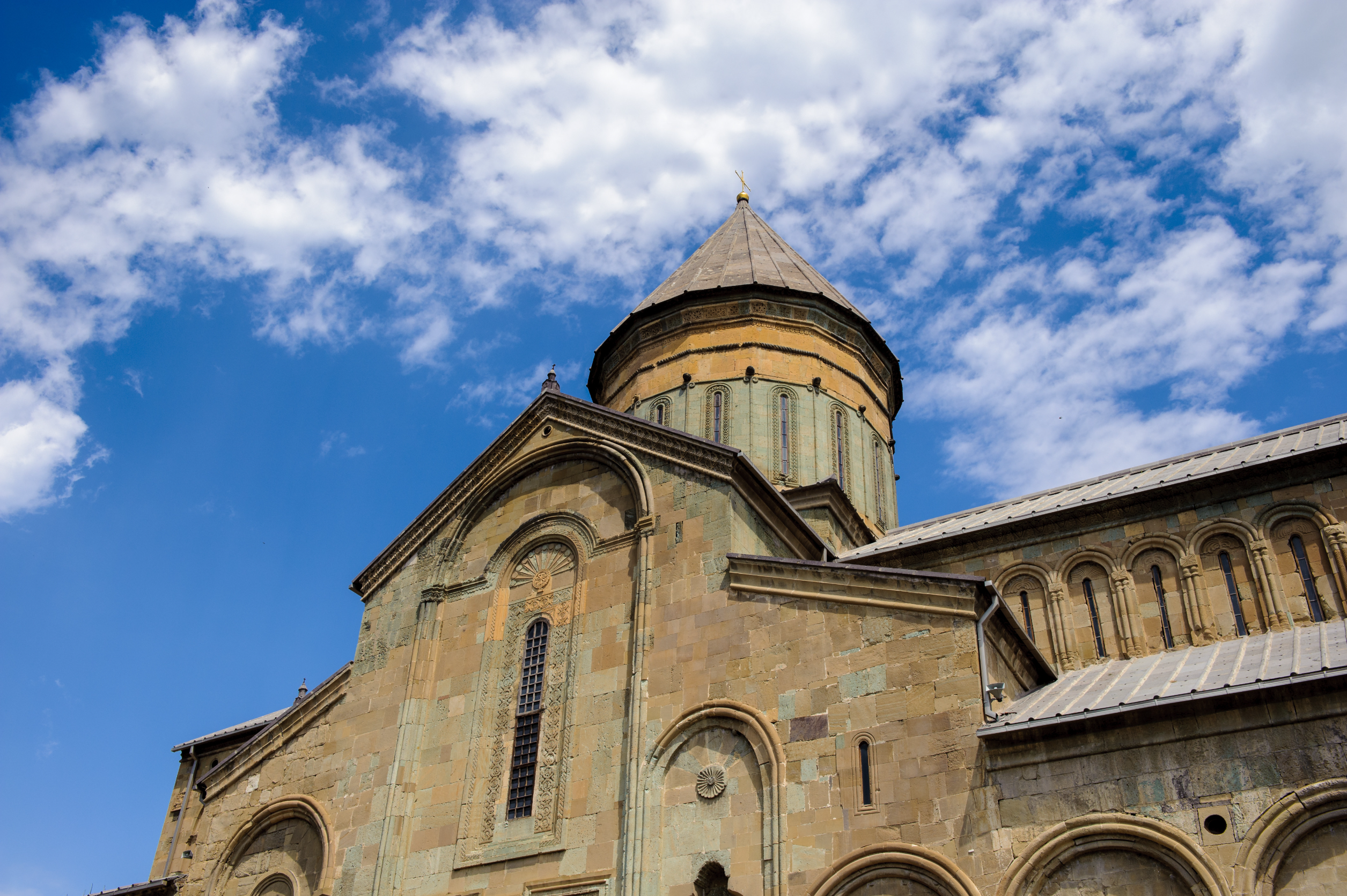
2. Jvari Monastery
Standing atop a hill overlooking Mtskheta, the Jvari Monastery offers breathtaking views of the confluence of the Mtkvari and Aragvi rivers. Founded in the 6th century, it is one of the oldest Christian monuments in Georgia and a symbol of the country's conversion to Christianity. Pilgrims can soak in the monastery's spiritual atmosphere while taking in panoramic vistas of the surrounding landscape.
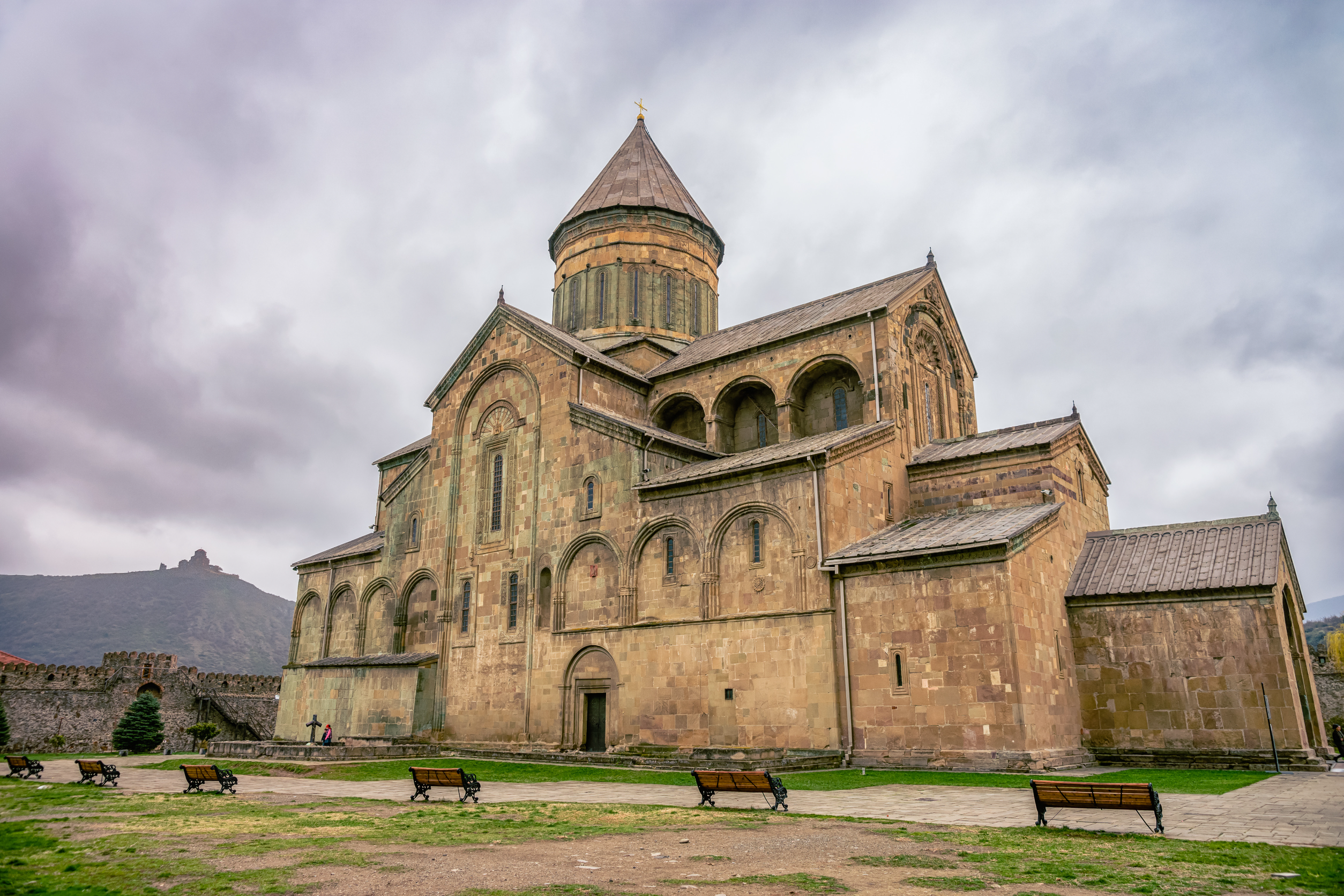
3.David Gareja Monastery
Nestled amidst the rugged terrain of southeastern Georgia, the David Gareja Monastery complex is a testament to the ascetic tradition of Orthodox Christianity. Carved into the cliffsides, its rock-hewn caves and churches house ancient frescoes and relics, transporting visitors to a bygone era of monasticism and spiritual devotion.
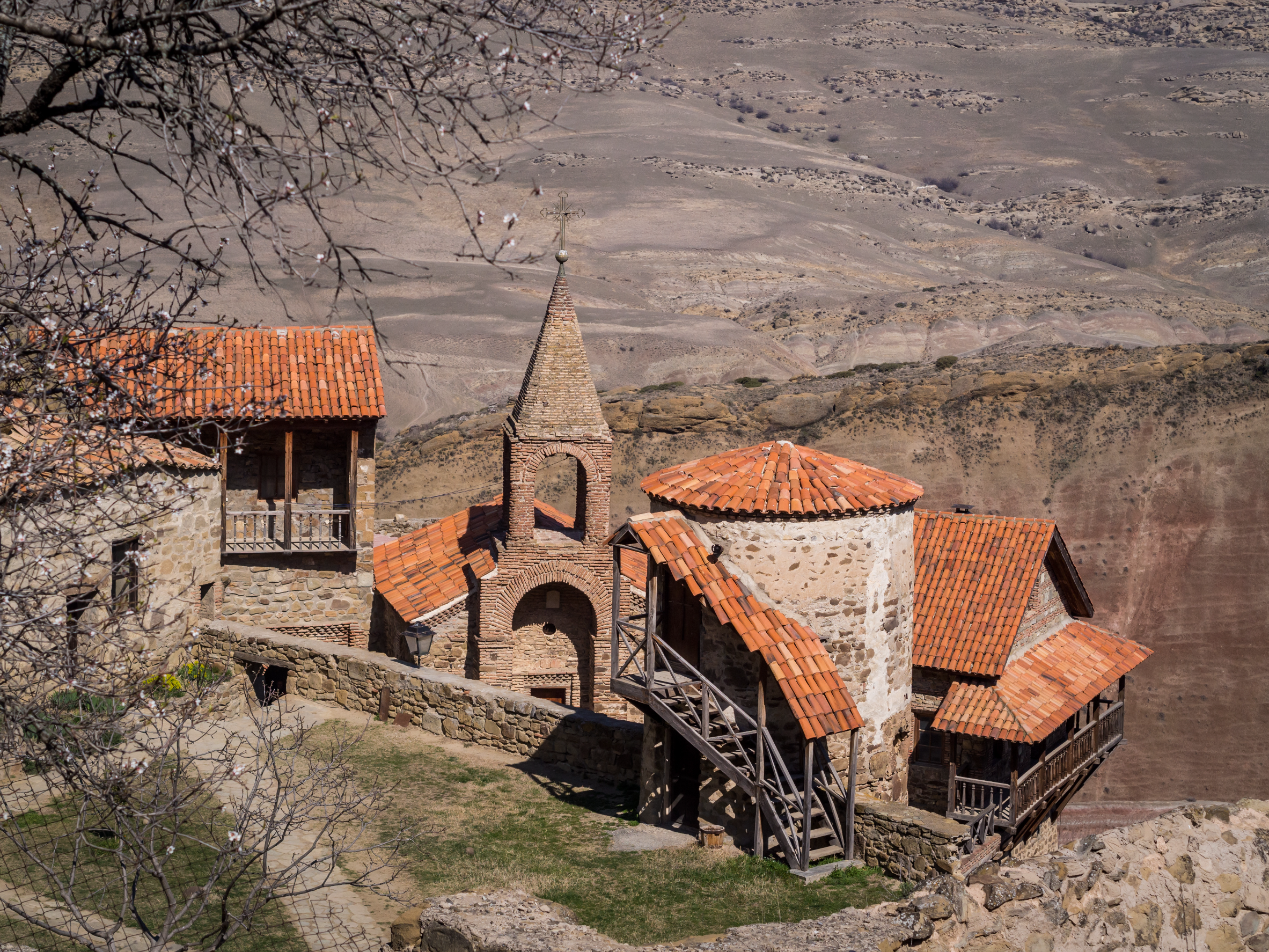
4. Vardzia Monastery
Hidden within the cliffs of southern Georgia, the Vardzia Monastery is a marvel of mediaeval engineering and religious fervour. Founded in the 12th century by Queen Tamar, it was a refuge for monks and pilgrims alike. Pilgrims can explore its labyrinthine tunnels, chapels, and dwellings, marvelling at the ingenuity of its construction and the spirituality that permeates its walls.
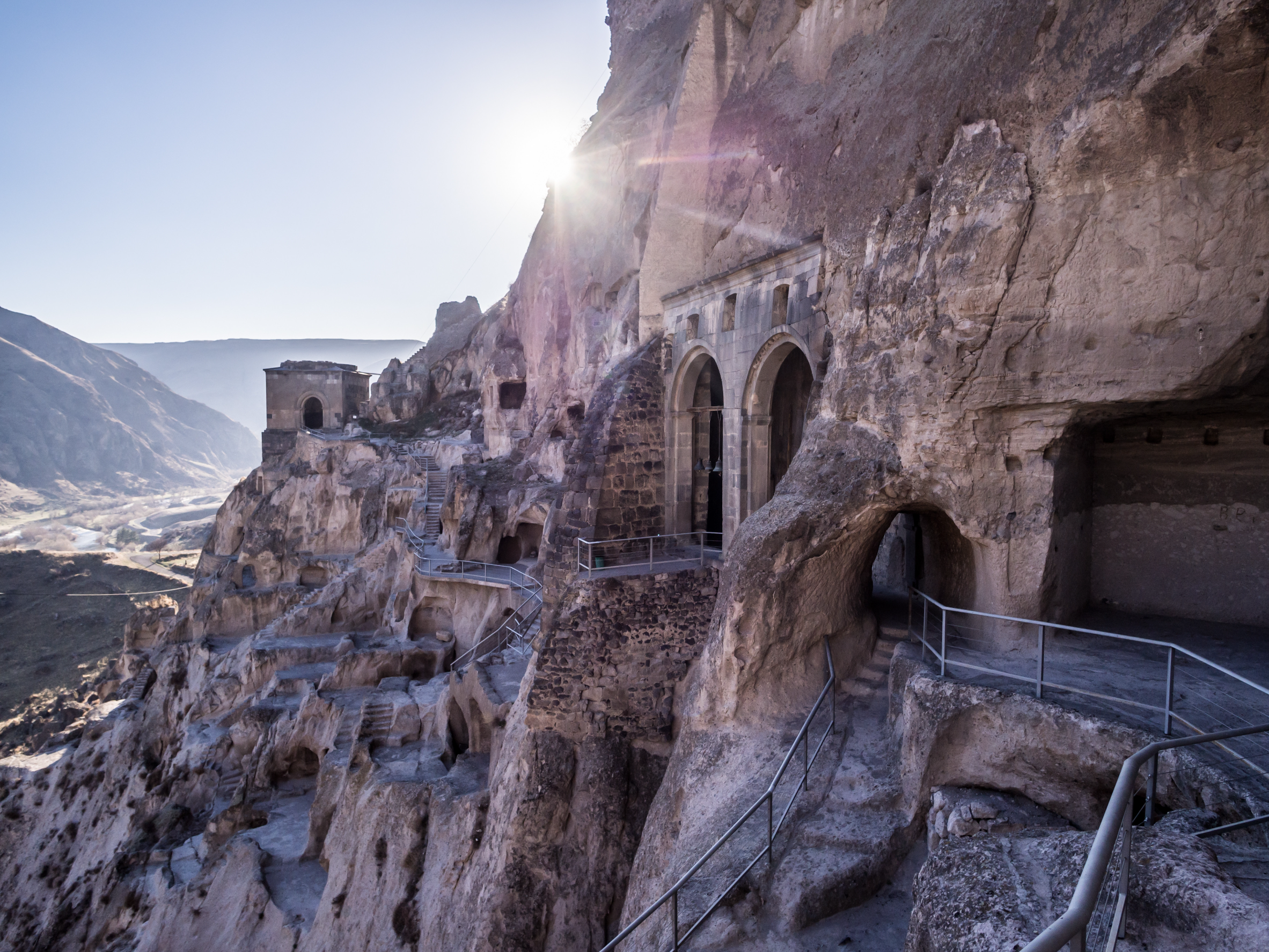
5. Gergeti Trinity Church
Perched at an altitude of over 2,000 metres in the Kazbegi region, the Gergeti Trinity Church offers a glimpse into Georgia's mountainous landscapes and spiritual heritage. Surrounded by snow-capped peaks and lush valleys, it provides a tranquil setting for prayer and reflection, drawing pilgrims and travellers seeking solace amidst nature's grandeur.
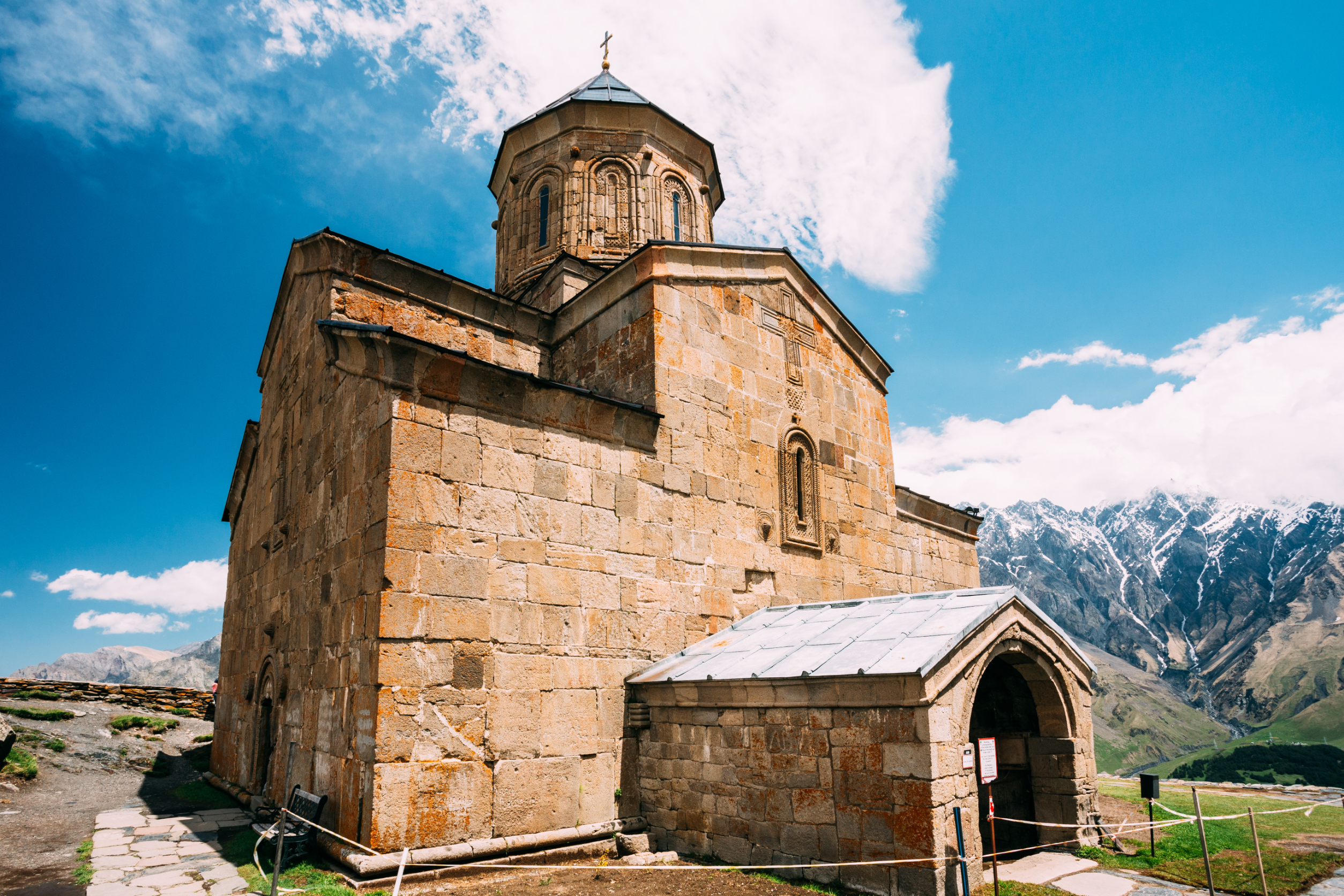
Suggestions for a Successful eVisa Application
Maximise your chances of a hassle-free eVisa application process for your religious pilgrimage to Georgia by following these essential guidelines:
- Initiate the application process early: Begin your eVisa application well in advance to avoid last-minute rushes and ensure ample time for gathering necessary documents.
- Thoroughly complete the application form: Carefully review and accurately fill out all sections to minimise errors that could delay processing.
- Submit all required documents: Provide all essential documentation, including passport details, accommodation reservations, return tickets, and valid travel insurance, to support your application.
- Comply with photo specifications: Ensure your passport photograph adheres to the specified size, resolution, and background requirements for eVisa applications.
- Confirm processing timelines: Familiarise yourself with the expected processing times for eVisas and plan your application accordingly, allowing for any unforeseen delays.
- Prepare for border clearance: Organise all pertinent documents, such as your eVisa approval, passport, return ticket, and proof of accommodation and insurance, to present to border authorities upon arrival in Georgia.
Enriching Cultural and Spiritual Adventures in Georgia with a Religious eVisa
Embark on a voyage of cultural and spiritual discovery with a religious eVisa to Georgia, where an array of captivating experiences awaits:
Discover age-old religious landmarks: Uncover UNESCO World Heritage Sites such as the Jvari Monastery and Svetitskhoveli Cathedral, providing insights into Georgia's profound history and architectural wonders.
Partake in vibrant religious celebrations: Immerse yourself in the fervour of annual festivities like the Alaverdi Cathedral celebration, featuring traditional music, culinary delights, and cultural exhibitions.
Experience unique religious customs: Engage with the distinct polyphonic chants and symbolic rituals of the Georgian Orthodox Church, gaining a deeper understanding of their cultural significance.
Embrace Georgian hospitality: Indulge in Georgian culture's legendary warmth and hospitality, relishing authentic cuisine and forging connections with local communities.
Immerse yourself in local traditions: Engage with the diverse tapestry of Georgian customs through interactions with locals, fostering a richer appreciation for their way of life.
Disclaimer: This information is intended for general guidance and was last updated in January 2025. While we strive to ensure the accuracy and completeness of the information, we cannot guarantee it and accept no liability for any errors or omissions. Visa requirements, application procedures, and fees are subject to change, and applicants should verify the most current information through the official government website or relevant authorities.
FAQS
The Georgia Visa for Religion/Pilgrimages is a special visa for individuals or groups intending to visit Georgia for religious or pilgrimage purposes, allowing entry for spiritual journeys.
Any individual or group with a genuine intention to visit Georgia for religious or pilgrimage reasons, such as visiting religious sites, attending festivals, or participating in spiritual events, is eligible to apply.
The Georgia Visa for Religion/Pilgrimages application is typically completed online through the official eVisa portal. Applicants must fill out the application form, provide the required documentation, and pay the visa fee electronically.
Required documents may include a valid passport, recent photograph, travel itinerary, proof of accommodation, health insurance, return ticket, invitation letter (if applicable), financial proof, and completed application form.
The processing time for the Georgia Visa for Religion/Pilgrimages is usually around 5 business days. However, applicants are advised to apply well in advance of their intended travel date to allow for any processing delays.

To help us improve